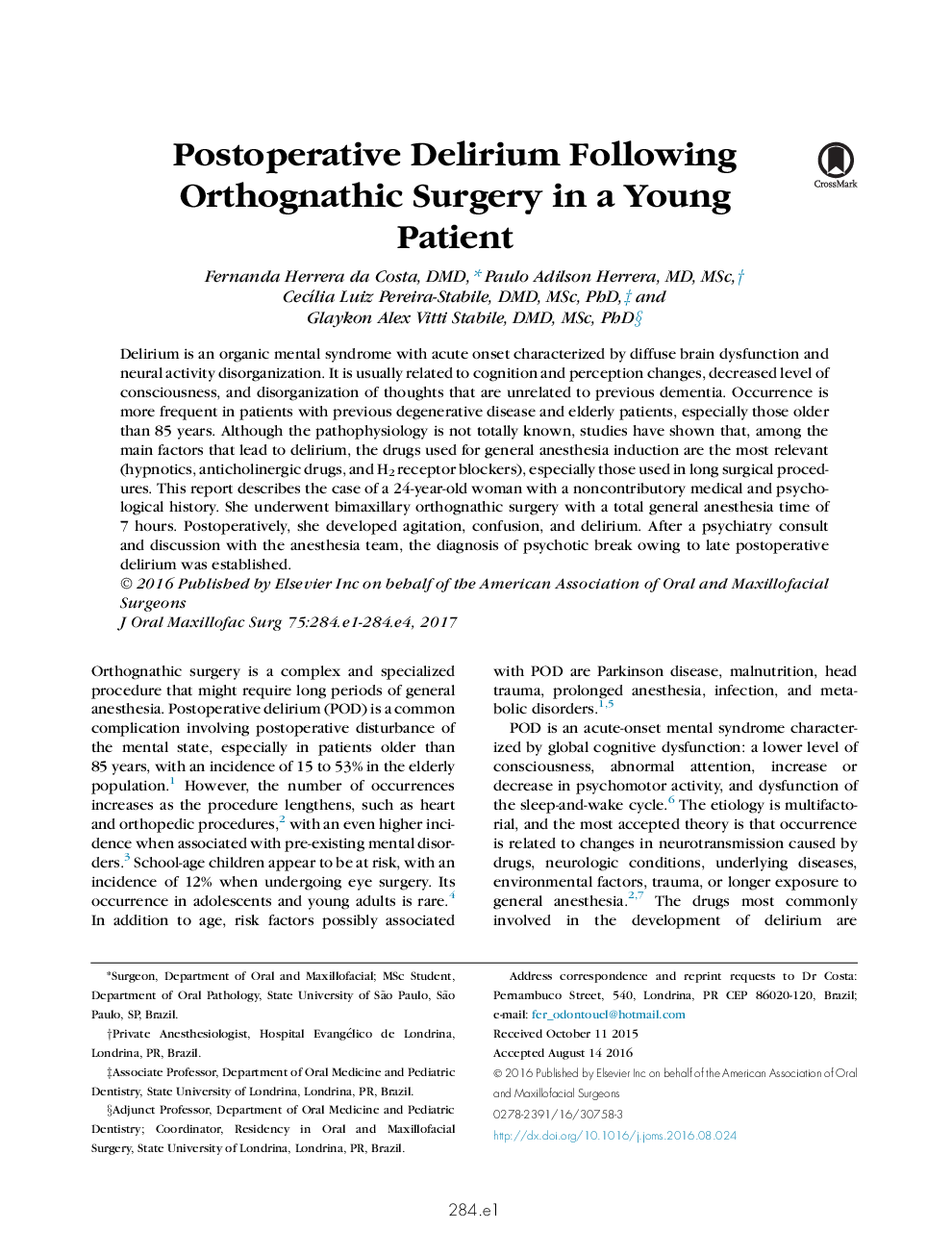| Article ID | Journal | Published Year | Pages | File Type |
|---|---|---|---|---|
| 5642038 | Journal of Oral and Maxillofacial Surgery | 2017 | 4 Pages |
Abstract
Delirium is an organic mental syndrome with acute onset characterized by diffuse brain dysfunction and neural activity disorganization. It is usually related to cognition and perception changes, decreased level of consciousness, and disorganization of thoughts that are unrelated to previous dementia. Occurrence is more frequent in patients with previous degenerative disease and elderly patients, especially those older than 85Â years. Although the pathophysiology is not totally known, studies have shown that, among the main factors that lead to delirium, the drugs used for general anesthesia induction are the most relevant (hypnotics, anticholinergic drugs, and H2 receptor blockers), especially those used in long surgical procedures. This report describes the case of a 24-year-old woman with a noncontributory medical and psychological history. She underwent bimaxillary orthognathic surgery with a total general anesthesia time of 7Â hours. Postoperatively, she developed agitation, confusion, and delirium. After a psychiatry consult and discussion with the anesthesia team, the diagnosis of psychotic break owing to late postoperative delirium was established.
Related Topics
Health Sciences
Medicine and Dentistry
Dentistry, Oral Surgery and Medicine
Authors
Fernanda Herrera DMD, Paulo Adilson MD, MSc, CecÃlia Luiz DMD, MSc, PhD, Glaykon Alex DMD, MSc, PhD,
